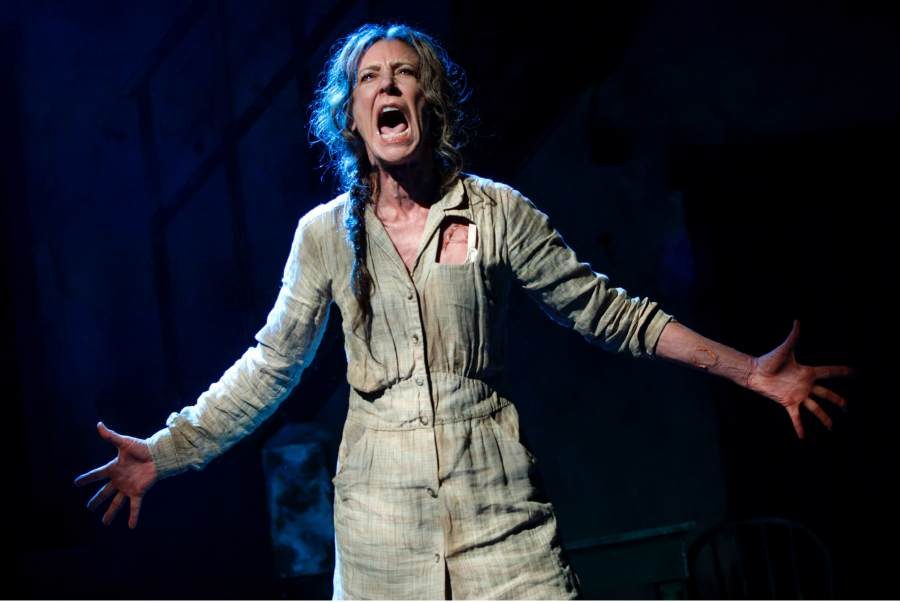

If you are convinced society has progressed beyond Nathaniel Hawthorne’s vision in The Scarlet Letter, Suzan-Lori Parks has an offering to prove otherwise: Fucking A. In the program notes for the Signature Theatre's revival production, Parks admits she hadn’t read the novel when she set out to write Fucking A, and that this is more of a “riff” than a retelling: “Like a contrafact, if you know jazz. You take the chords and you write your own melody.” Regardless of Parks’s initial familiarity with the novel, what results on stage is a staggering work of expert storytelling and captivating performances brought to life by Jo Bonney’s direction.
In this “small town in a small country in the middle of nowhere” is Hester Smith (Christine Lahti), the local abortionist, both relied upon and ostracized by the town for her services. She’s the keeper of their secrets, and her mark “A” is the reminder of her profession --Abortionist -- and a projection of the town’s hypocrisy. Her closest friend is Canary Mary (Joaquina Kalukango), the whore turned kept woman of the Mayor (Marc Kudisch), who blames his wife, The First Lady (Elizabeth Stanley), for her inability to get pregnant. Mary and Hester’s place on the fringe cements their bond, and their positions on the spectrum of female sexuality -- intercourse and pregnancy, the act and the aftermath -- are seemingly timeless manifestations of the exploitation of and blame incurred by women. This reality, men don’t seem able to comprehend. If they can, they ignore it, dismiss it, or absolve themselves of it. Parks employs “TALK,” a foreign language translated simultaneously for the audience, spoken by the women, which some men attempt to know but most don’t try to learn.
Parks doesn’t sugarcoat the standards we hold women to as opposed to men, especially when Hester talks of her imprisoned son, Boy Smith (Brandon Victor Dixon), and Butcher (Raphael Nash Thompson) speaks of his own daughter, Lulu. He declares (from memory!) all of the crimes Lulu has committed, some serious, but most absurd: speaking her mind without a permit, not eating her vegetables. Hester, however, declares her son an angel, despite acting out in prison.
Each actor in this performance is exemplary. Most of the cast seamlessly plays multiple roles and performs musical accompaniment for Parks’s songs, which are either darkly funny or cathartic but always entertaining. Don’t miss this experience. The journey to knowledge is difficult and ends in a heartbreaking climax, comparable to the most searing of Greek tragedies, but the lessons are necessary, since from the time of Hawthorne, we seem to have learned nothing at all.